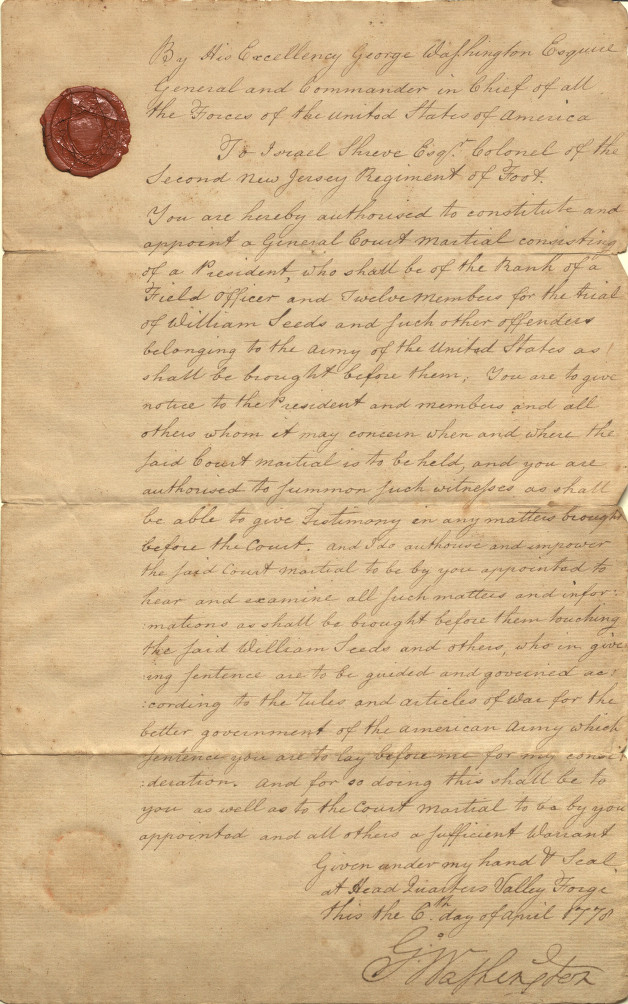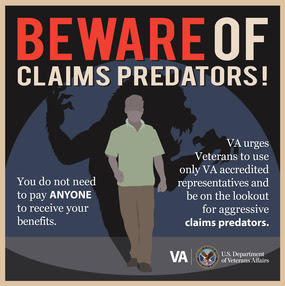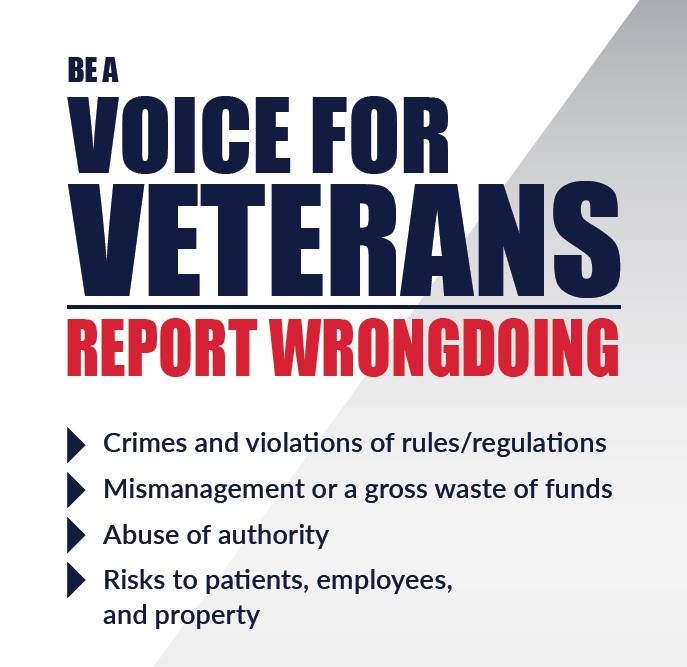- Home
- Veterans Law Info
- Law Review Articles
Law Review Articles
This page features law review articles in the area of veterans law, especially those relevant to compensation and pension examinations (C&P exams) for PTSD and other mental disorders.
PTSDexams.net is an educational site with no advertising and no affiliate links. Dr. Worthen conducts Independent Psychological Exams (IPE) with veterans, but that information is on his professional practice website.
Table of Contents
Recent Law Review Articles (Veterans Law)
φ Presumption of Competency: A Succinct History & Cogent Analysis
φ Federal Government Steals Veterans' 2nd Amendment Rights with Zero Due Process
φ Give Veterans the Benefit of the Doubt
φ The Puzzling Presumption of Competence
Understanding Legal Terms and Writing Style
Ω Introduction to Basic Legal Citation
Ω Decipher the Language of Court Opinions
Recent Law Review Articles
Presumption of Competency: A Succinct History & Cogent Analysis
Key Point
If you want to understand the presumption of competency for VA medical examiners, I highly recommend this erudite article, which the author wrote in a refreshingly crisp, clear, and concise manner.α
Citation
Nicole J. Soria, "Challenging the Presumption of Competency of Veterans Affairs Compensation and Pension Examiners: Shifting the Burden of Proof from the Veteran Back to the VA," Thomas Jefferson Law Review 42, no. 1 (Fall 2019): 89-126.
About the Author
Nicole J. Soria, B.A., M.B.A is a law student at Thomas Jefferson School of Law in San Diego, California. She dedicated this article to her grandfather, father, and husband, all veterans. Ms. Soria is herself a veteran of the U.S. Marine Corps.
Ms. Soria worked as a senior paralegal with Veterans Law Group, La Jolla, California. The principal of that law firm, Mark Lippman, represented the plaintiff in the now-famous case of Mathis v. McDonald,1 which became Mathis v. Shulkin when it reached the Supreme Court.2
Synopsis
Unlike articles in psychology and medicine, law review articles usually do not include an abstract. I have therefore written this synopsis, broken down by selected section titles or headings from the article itself.
The Presumption's Foundation and Application in the VA Disability Appeals System
Soria offers a pithy review of the case law that led to the current presumption of competence in veterans law.
Cases briefly reviewed include:
- Cox v. Nicholson - The VA is Not Required to Affirmatively Establish an Examiner's Competency Before the Board is Permitted to Rely on That Opinion
- Rizzo v. Shinseki - Held That the Board Need Not Establish an Examiner's Competency Before the VA can Rely on That Examiner's Opinion
- Bastien v. Shinseki - Stated the Standard for a Proper Rebuttal of the Presumption
- Nohr v. McDonald - The Veteran Does Not Have the Ability to ask Questions Directly to the VA's Examining Physicians
- Mathis v. McDonald - Revisited the Issues of the Precedential Cases Relating to the Presumption of Competency but Provided no Further Guidance for the Claimant
Veterans Do Not Have Access to the Necessary Information to Determine Whether the Examiner is Competent or Not
This is one of the fundamental problems with the current presumption of competence.
The Presumption of Competency Shifts the Burden of Proof from the VA Onto the Veteran
Veterans—most of whom do not have legal representation—must first raise the issue of examiner competency upon appeal to the Board of Veterans Appeals. If they don't, they cannot question an examiner's competence in subsequent appeals.
The Presumption of Competency Incorrectly Implies That all Examiners are Sufficiently Qualified to Conduct Each Exam They Give
Most psychologist and psychiatrist examiners know from experience that many VA psych examiners are not sufficiently qualified, and such examiners do not conduct an evidence-based evaluation of a veteran's PTSD or other mental disorder claim.
The Presumption Favors the VA by Enabling the Board to Make Decisions Without Considering the Credibility of Opining Physicians
In every other legal arena, criminal and civil, the burden of proof is on the side offering the expert witness testimony to demonstrate that their expert.
For example, in any other federal court, the Federal Rules of Evidence state:
A witness who is qualified as an expert by knowledge, skill, experience, training, or education may testify in the form of an opinion or otherwise if:
(a) the expert’s scientific, technical, or other specialized knowledge will help the trier of fact to understand the evidence or to determine a fact in issue;
(b) the testimony is based on sufficient facts or data;
(c) the testimony is the product of reliable principles and methods; and
(d) the expert has reliably applied the principles and methods to the facts of the case.3
Claimants Provide the Credentials of Third Party Examining Physicians When Submitting an Independent Medical Evaluation for Consideration of Their Claim, and Therefore, the VA Should Too
This is one of the many disparities the VA has created between their own experts and a veteran's expert.
Another disparity, for example, is the fact that VA examiners can conduct telemental exams with veterans, but independent psychologists or psychiatrists retained by a veteran cannot.
The VA Could Solve Part of Their Backlog Issues by Preemptively Establishing the Competency of its Examiners
VA could, for example, include a copy of the examiner's curriculum vitae (CV) with every exam report.
In addition, attorney Mark Lipman has suggested that examiners could explain in their reports how their training, education, and/or experience relates to the disability they are evaluating.
Endnote
α. When the VA refers to medical examiners, they include physicians, psychologists, audiologists, nurse practitioners, physician assistants, and other licensed health care professionals under the rubric of "medical".
Footnotes
1. Mathis v. McDonald, 834 F.3d 1347 (Fed. Cir. 2016).
2. Mathis v. Shulkin, 137 S. Ct. 1994, 198 L. Ed. 2d 744 (2017).
3. Testimony by Expert Witnesses, Fed. R. Evid. 702.
Federal Government Steals Veterans' Second Amendment Rights with Zero Due Process
Citation
Stacey-Rae Simcox, Depriving Our Veterans of Their Constitutional Rights: An Analysis of the Department of Veterans Affairs’ Practice of Stripping Veterans of Their Second Amendment Rights and Our Nation’s Response, Uᴛᴀʜ L. Rᴇᴠ., vol. 2019, no. 1, article no. 1.
Synopsis
In contrast to veterans’ lifelong promise to uphold the Constitution (“support and defend the Constitution of the United States against all enemies, foreign and domestic”), the federal government systematically strips some veterans of their Second Amendment rights.
This deprivation of a fundamental constitutional right occurs if the Department of Veterans Affairs (VA) declares a veteran incapable of managing their financial affairs, particularly their disability compensation payments.
To be clear, the VA does not make any determination that a veteran is mentally ill, a danger to himself, or a danger to others when it determines the veteran is financially incompetent.
When the Veterans Benefits Administration (VBA) determines that a veteran is financially incompetent, the agency reports this conclusion to the Federal Bureau of Investigation (FBI), which then adds the veteran's name and identifying information to the National Instant Criminal Background Check System (NCIS), indicating that the veteran is "mentally defective", and is therefore prohibited from owning or possessing a firearm.
This law review article includes an illustrative case-study of a veteran whom the VA determined to be financially incompetent.
The article contrasts the Social Security Administration's initial decision to not report financially incompetent persons to the FBI, and the United States Congress' refusal to change that policy in 2017.
Why are veterans singled out for reporting their allegedly "mentally defective" status to the FBI, their subsequent inclusion on the NCIS, and the dispossession of their Second Amendment rights?
Both the U.S. House and Senate have introduced legislation since 2008 to correct this injustice, with some bills passing one chamber but not the other.
Opponents of such legislation worry that suicidal veterans might retain access to firearms, leading some veterans to kill themselves with guns that would have otherwise been "taken away" (in terms of the veteran's ability to own and possess a firearm legally) by the current policy. Professor Simcox addresses this concern.
NOTE: Unlike most medical and psychological peer-reviewed journal articles, law review articles do not usually include an abstract. I therefore composed the above synopsis, drawing directly from Professor Simcox's article. - Mark D Worthen PsyD
Comment
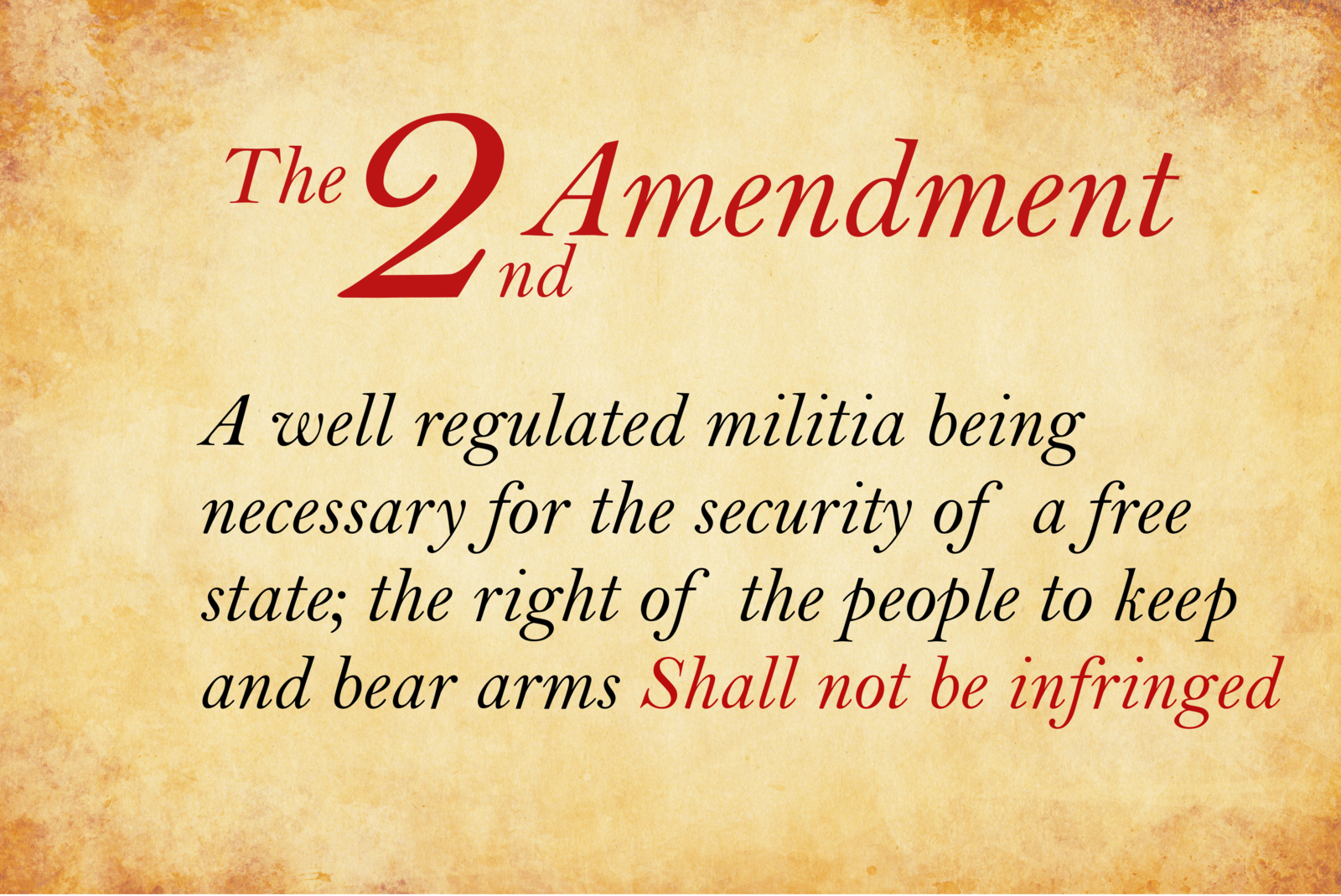 Second Amendment to the U.S. Constitution
Second Amendment to the U.S. ConstitutionProfessor Simcox—a leading veterans law scholar, advocate, and U.S. Army veteran—succinctly analyzes several practical, procedural, and legal flaws with the current federal government policy regarding veterans deemed financially incompetent by VA.
On a personal level, I felt encouraged reading this excellent law review article. It's one more hole in the tin armor slapped up around the government's exasperating, prejudicial policy.
I hope that we will soon rectify this injustice imposed on United States military veterans—the very men and women who have risked life and limb to protect the rest of us from harm—including harm to our Constitution.
Congress came frustratingly close to passing legislation to right this wrong in 2013. Per Senate rules, votes on amendments to the primary bill required a 3/5 majority to pass. The vote was 56–44 in favor, therefore Senator Burr's amendment was rejected.α
Nonetheless, Representatives and Senators who recognize the unjust nature of the government's policy have not given up. They continue to work in a bipartisan to pass the Veterans Second Amendment Protection Act.
Representative Phil Roe, M.D. (R–TN), Ranking Member of the House Committee on Veterans' Affairs, and Rep. Collin Peterson (D–MN), a Member of the Committee, recently introduced H.R. 3826, the Veterans 2nd Amendment Protection Act.
The current status of H.R. 3826 is immediately below, courtesy of govtrack.us:
Footnote
α. Roll call vote on the Amendment by Sen. Burr, S.Amdt. 720 ("To protect the Second Amendment rights of veterans and their families") to S. 649 (Safe Communities, Safe Schools Act of 2013), S. vote no. 102, 113th Cong. (1st sess.), YEAs 56, NAYs 44, Amdt. rejected (Apr. 17, 2013).
Closely Related Readings
Administration and Policy in Mental Health and Mental Health Services Research 45, no. 4 (2018)
Blocher, Joseph. "Constitutional Implications of Firearm Restrictions for Veterans with Fiduciaries". Administration and Policy in Mental Health and Mental Health Services Research 45, no. 4 (2018): 684–686. https://doi.org/10.1007/s10488-018-0883-9
Bossarte, Robert M. “Challenges Associated with the Use of Policy to Identify and Manage Risk for Suicide and Interpersonal Violence Among Veterans and Other Americans”. Administration and Policy in Mental Health and Mental Health Services Research 45, no. 4 (2018): 692–695. https://doi.org/10.1007/s10488-018-0882-x [PMC6416781] [PDF]
Cain, Eric D. "Predicting Risk of Suicide Among Individuals Who are Members of Higher-Risk Populations: Finding THE Needle in a Stack of Needles!". Administration and Policy in Mental Health and Mental Health Services Research 45, no. 4 (2018): 696. https://doi.org/10.1007/s1048
DeLeon, Patrick H., Maegan M. Paxton, Tonya Spencer, and Jouhayna E. Bajjani-Gebara. "Research driven policy: is financial capacity related to dangerousness?". Administration and Policy in Mental Health and Mental Health Services Research 45, no. 4 (2018): 689–691. https://doi.org/10.1007/s10488-018-0885-7
Swanson, Jeffrey, Michele Easter, Mira Brancu, VA Mid-Atlantic MIRECC Workgroup, and John A. Fairbank. "Informing Federal Policy on Firearm Restrictions for Veterans with Fiduciaries: Risk Indicators in the Post-Deployment Mental Health Study". Administration and Policy in Mental Health and Mental Health Services Research 45, no. 4 (2018): 673–683. https://doi.org/10.1007/s10488-018-0881-y
Thompson, Caitlin. "Firearms, Fiduciaries, and Veterans: Complications of a Flawed Federal Policy Designed to Keep Veterans Safe". Administration and Policy in Mental Health and Mental Health Services Research 45, no. 4 (2018): 687–688. https://doi.org/10.1007/s10488-018-0884-8
Research Reviews
Krouse, William J. and Scott D. Szymendera. Gun Control, Veterans Benefits, and Mental Incompetency Determinations. R44818 ver. 3. Washington, D.C.: Library of Congress, Congressional Research Service (2017). https://crsreports.congress.gov/product/pdf/R/R44818/3
Rozel, John S., and Edward P. Mulvey. "The Link Between Mental Illness and Firearm Violence: Implications for Social Policy and Clinical Practice". Annual Review of Clinical Psychology 13 (2017): 445–469. https://doi.org/10.1146/annurev-clinpsy-021815-093459 PMC5784421 [PDF]
Congressional Testimony
I encourage you to read the eight-page Statement submitted by Jeffrey W. Swanson PhD, a medical sociologist and Professor in Psychiatry and Behavioral Sciences at Duke University School of Medicine, and a researcher and expert on firearms laws, mental illness, and prevention of violence; and Richard Bonnie LLB, Director, Institute of Law, Psychiatry and Public Policy, University of Virginia School of Law, and one of the most esteemed law & psychiatry experts ever.
The Swanson & Bonnie Statement offers an erudite, pithy, and balanced analysis. Here is the full citation for the hearing at which they submitted their statement (testimony):
Hearing on H.R. 2214, H.R. 1380, H.R. 2706, H.R. 2691, H.R. 303, H.R. 1338, H.R. 1302, H.R. 2605 and H.R. 1384 Before the H. Subcomm. Disability Assistance and Memorial Aff., Comm. Veterans Aff., 114th Cong., 1st sess., "Testimony Submitted for the Record by Jeffrey Swanson, PhD and Richard Bonnie, LLB" regarding the Veterans 2nd Amendment Protection Act, H.R. 2001, Printed for the use of the Committee on Veterans’ Affairs, Gov't Printing Off., Serial No. 114-28, pp. 89–96 (June 24, 2015).
Give Veterans the Benefit of the Doubt
Citation
Chadwick J. Harper, Give Veterans the Benefit of the Doubt: Chevron, Auer, and the Veteran’s Canon, 42 Harv. J. L. & Pub. Pol’y 931 (2019). [PDF]
Abstract
Courts face a difficult question when doctrines of deference like Chevron and Auer conflict with the veteran’s canon—the Supreme Court’s “rule that interpretive doubt is to be resolved in the veteran’s favor.”
When a statute or regulation is ambiguous, should a reviewing court defer to the VA under agency deference doctrines, or follow the veteran’s canon and resolve the doubtful language in favor of the veteran?
This Note answers that question by arguing that in those interpretive battles, the veteran’s canon should triumph over Chevron and Auer.
The veteran’s canon is a traditional tool of interpretation, and as such, it should be applied to resolve ambiguity before courts defer to the VA’s views on a statute or regulation.
This use of the veteran’s canon reflects Congress’s general intent in providing judicial review of the VA’s decisions, and its specific intent in legislating in the area of veterans’ benefits. (emphasis added; footnotes omitted; spacing added to improve online readability)
[This law review article does not contain a formal abstract. Most of the text in the above two paragraphs comes directly from Mr. Harper's article (or "Note" in the formal language of law review articles, since it is written by a student) on pages 932–933, with minor edits to improve online readability.]
Comment
This is an exceptionally well-written article that offers a cogent argument to resolve ambiguous VA regulations in favor of veterans, as opposed to deferring to VA's interpretation of its own muzzy regulations.
The Puzzling Presumption of Competence
Citation
Chase Cobb, For Him Who Shall Have Borne the Battle: How the Presumption of Competence Undermines Veterans’ Disability Law, 25 Wash. & Lee J. Civ. Rts. & Soc. Just. 577 (2019). [PDF]
Abstract
When the Department of Veterans Affairs (VA) denies a veteran’s claim for disability benefits, it often does so based on the opinion of an expert medical examiner.
But under relatively recent case law, the VA carries no burden of laying a foundation for the expert medical examiner’s opinion—no burden of establishing the quality of the expert’s education or the depth of her experience; no burden of establishing the scope of the expert’s training.
Instead, the VA may simply presume the qualifications of its own expert examiner and throw the burden on the veteran of offering specific objections.
If the veteran fails to object to the examiner’s qualifications at a particular time (at the first stage of the disability review process), and if the veteran fails to object to the examiner’s qualifications in a particular way, the veteran loses the right to challenge the examiner’s qualifications on appeal.
This is a puzzling rule. In every other legal context—tort cases; contract disputes; murder trials—the burden of qualifying an expert falls on the party who wants to admit the expert’s testimony.
In a criminal trial, for example, the burden of qualifying a witness for the prosecution falls on the prosecution— who must then prove the expert’s qualifications through evidence of her education, experience, and training.
But the (so-called) “presumption of medical examiner competence” pushes that burden in the opposite direction. It inexplicably relieves the government of its duty of qualifying one particular kind of expert— VA medical examiners—and it shifts to the veteran a duty not only of discovering the expert’s deficiencies but also of expressing these deficiencies with a specific objection.
This rule would be odd in any legal context but is particularly odd as applied to the non-adversarial VA disability program.
Judge Reyna (U.S. Court of Appeals for the Federal Circuit) advocates that the court put on the VA the same evidentiary burden that belongs to a litigant in a tort case: The burden of laying a foundation for its own expert witnesses.
Because that approach is sensible, this note advocates that the Federal Circuit adopt it. (emphasis added; footnotes omitted; spacing added to improve online readability)
[This law review article does not contain a formal abstract. Most of the text in the above two paragraphs comes directly from Mr. Cobb's article (or "Note" in the formal language of law review articles, since it is written by a student) on pages 578–581, with edits to improve online readability.]
Understand Legal Writing
Every profession has it's own vocabulary, citation style, and article organization traditions. The law is no exception.
If you are not an attorney, I list below some resources to help you understand legal writing.
These are the same resources that helped me decode the specialized language of the law.
Introduction to Basic Legal Citation
Introduction to Basic Legal Citation is a free online book that is well-written, contemporary, and understandable for those of us who did not go to law school.
See the book's Table of Contents for an overview.
You can read the book online or, under the eBooks tab (it's on every web page for the book), you can download the book in PDF, ePub, or Mobi formats. (Amazon Kindle uses .mobi format).
While we're talking about legal citation, here is the citation for the book in Bluebook legal citation format:
- Pᴇᴛᴇʀ W. Mᴀʀᴛɪɴ, Iɴᴛʀᴏᴅᴜᴄᴛɪᴏɴ ᴛᴏ Bᴀsɪᴄ Lᴇɢᴀʟ Cɪᴛᴀᴛɪᴏɴ, rev. ed. (2017).
And here is the citation for the book using the Chicago Manual of Style:
- Martin, Peter W. Introduction to Basic Legal Citation. rev. ed. Ithaca, NY: Legal Information Institute, Cornell University Law School, 2017.
Quite a difference, eh?
Decipher the Language of Court Opinions
Mr. Martin's free book will help you decipher the language of court opinions like this excerpt from an important veterans law case:
In Rizzo, this court affirmed the Veterans Court’s application of the presumption of regularity to the VA’s choice of examiners. Rizzo v. Shinseki, 580 F.3d 1288, 1291 (Fed. Cir. 2009).
In Rizzo, neither this court’s decision nor the Veterans Court’s decision cited evidence about the VA’s—or its contractors’—processes for selecting examiners. Id. at 1292; Rizzo v. Peake, No. 07-0123, 2008 WL 4140421, at *2 (Vet. App. Aug. 26, 2008).
The presumption, therefore, was created without any evidentiary basis that the VA’s process for selecting examiners regularly yielded competent examiners. This was improper.
A “presumption should be predicated on evidence that gives us confidence that a particular procedure is carried out properly and yields reliable results in the ordinary course.” Mathis v. McDonald, No. 2015-7094, 2016 WL 1274457, at *5 (Fed. Cir. Apr. 1, 2016) (“Mathis II”) (citing Posey v. Shinseki, 23 Vet. App. 406, 410 (2010) and Malack v. BDO Seidman, LLP, 617 F.3d 743, 749 (3d Cir. 2010)).
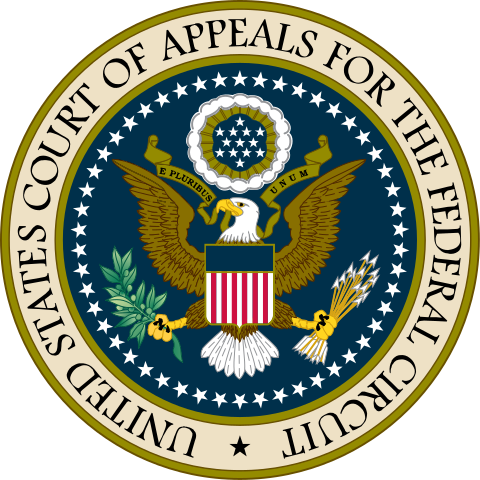
The Bluebook citation style for law review articles is significantly different from the Bluebook citation style judges use when writing court opinions.
If you saw the above case cited in a law review article, the citation would appear in a footnote, and would look like this:
Mathis v. McDonald, 643 F. App'x 968, No. 2015-7094 at *6 (Fed. Cir. Apr. 1, 2016).
Subscribe to receive new articles and other updates
What Do You Think?
I value your feedback!
If you would like to comment, ask questions, or offer suggestions about this page, please feel free to do so. Of course, keep it clean and courteous.
You can leave an anonymous comment if you wish—just type a pseudonym in the "Name" field.
If you want to receive an email when someone replies to your comment, click the Google Sign-in icon on the lower right of the comment box to use Google Sign-in. (Your email remains private.)
↓ Please comment below! ↓




